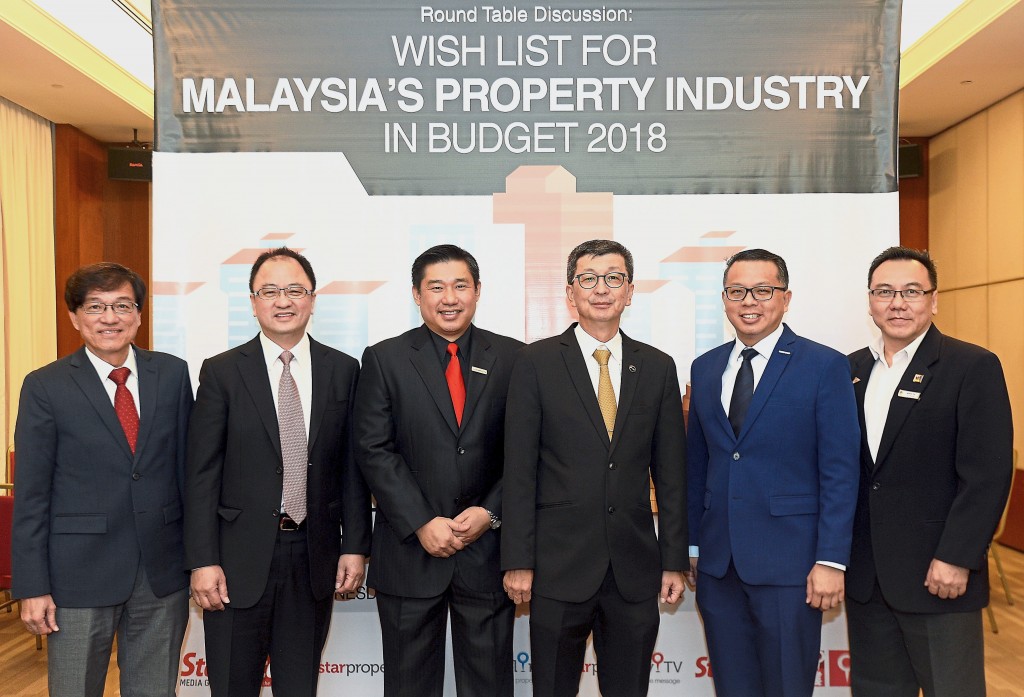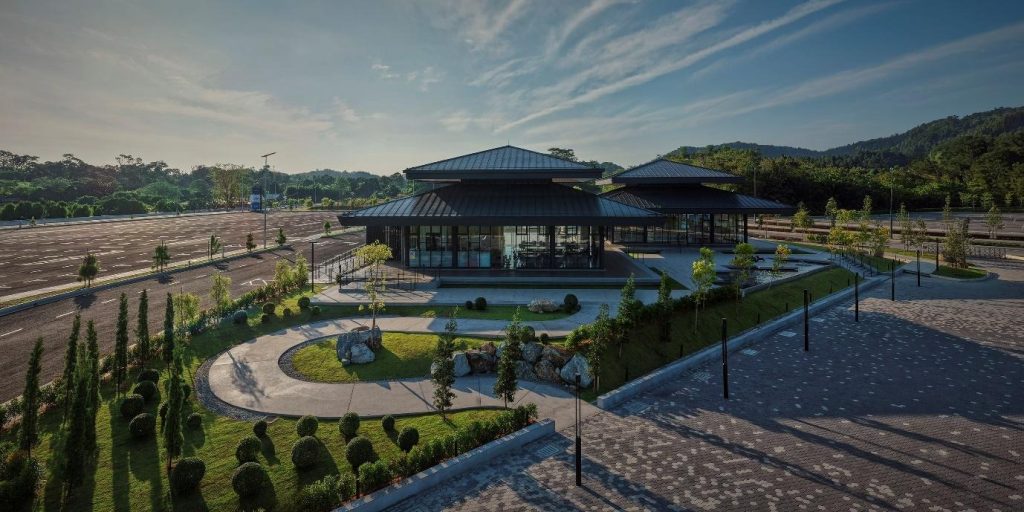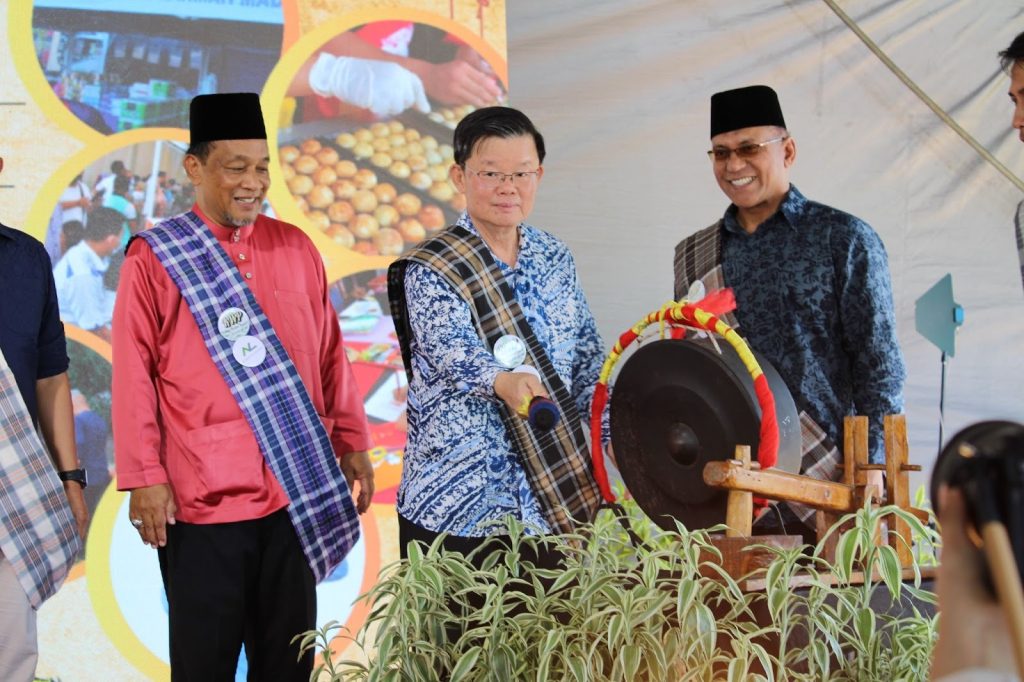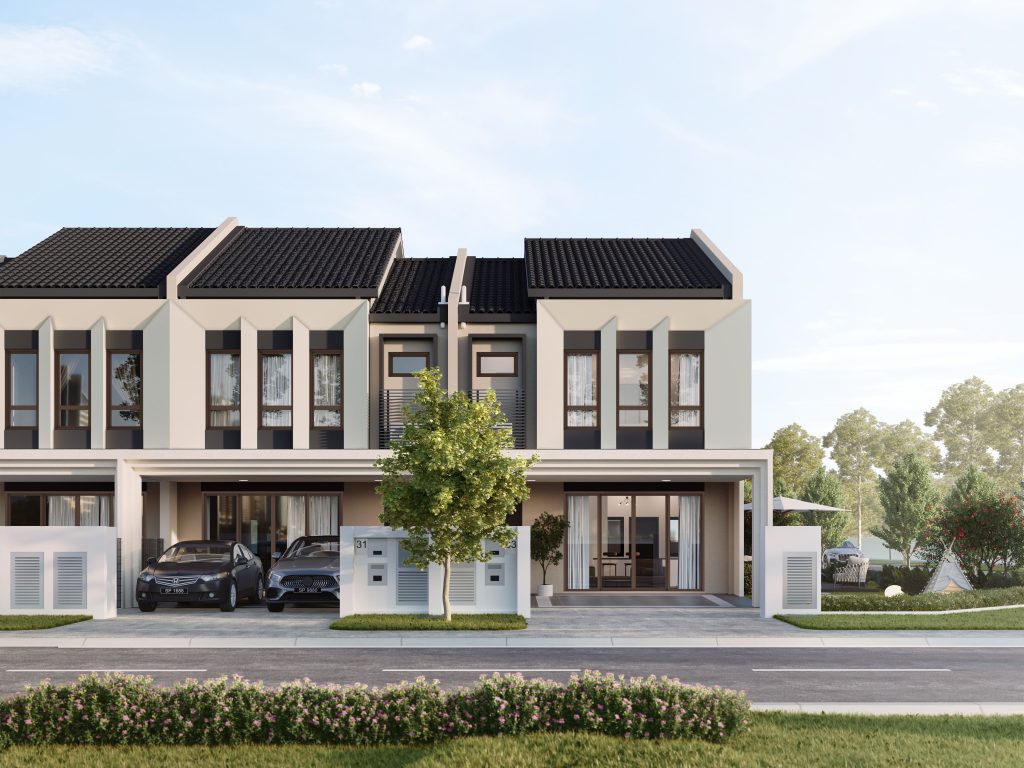By THARMINI KENAS
tharmini@thestar.com.my
Govt promoted lower-price housing projects, say industry players
BUDGET 2018 is almost here and expectations are soaring high, more so in the property sector where developers and the Rakyat are hoping to get support for housing in the form of tax incentives, subsidies, policies and more.
StarProperty.my recently organised a roundtable session titled “Wishlist for Malaysia’s Property Industry in Budget 2018” that involved business magnates of the property sector. The event, moderated by StarProperty Sdn Bhd assistant general manager Ernest Towle, was held on Sept 20 at Menara Star in Petaling Jaya.
Guests included LBS Bina Group Bhd managing director Tan Sri Lim Hock San, JKG Land Bhd managing director Datuk Teh Kean Ming, Mah Sing Group Bhd chief executive officer Datuk Ho Hon Sang, IJM Land Bhd managing director Edward Chong and Malaysian Institute of Estate Agents (MIEA) deputy president Kelvin Yip.
The event began with a recap of Budget 2017 and its impact on the real estate market, as well as a discussion on current issues faced by the industry and homebuyers.
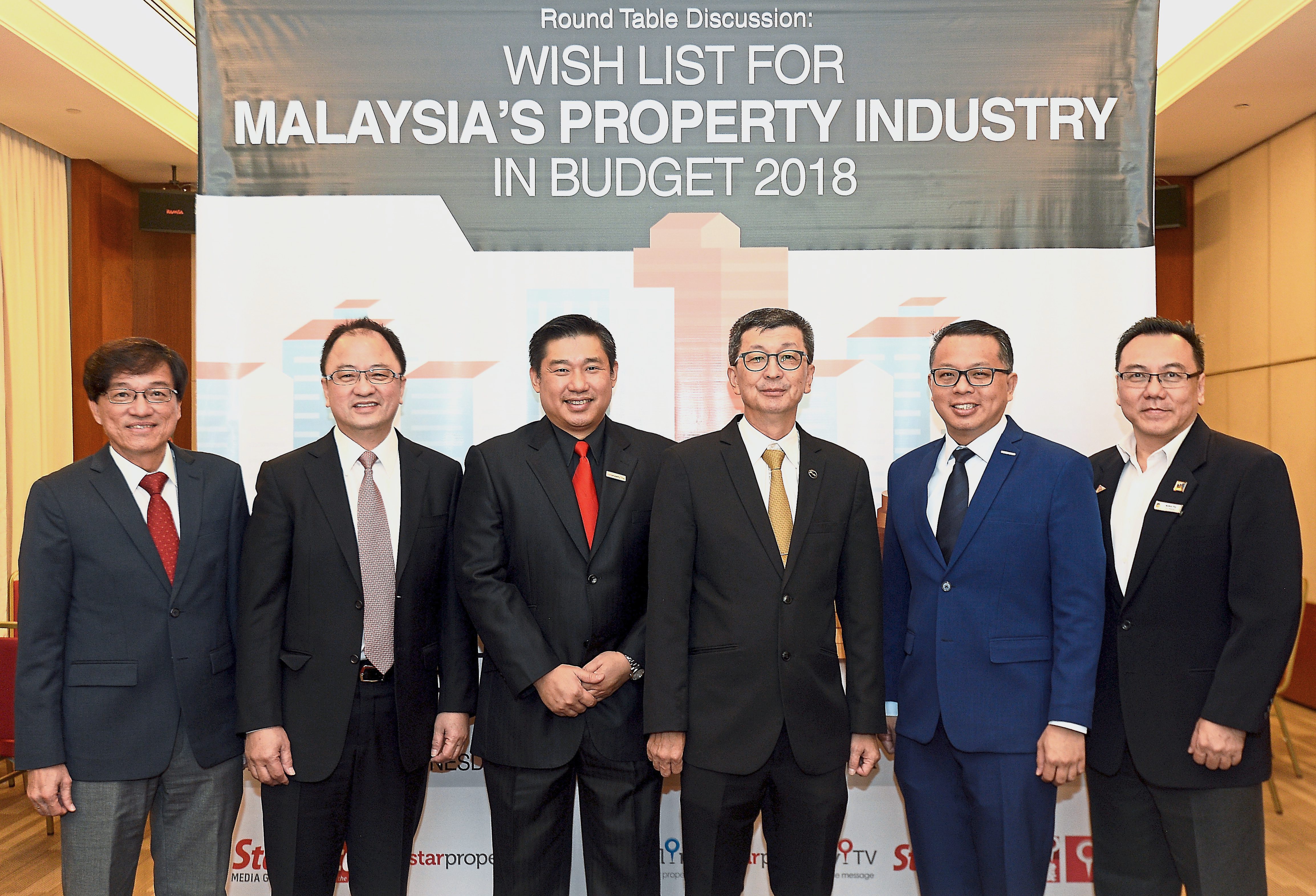
Budget 2018 roundtable. From left: Mah Sing Group Bhd chief executive officer Datuk Ho Hon Sang, JKG Land Bhd managing director Datuk Teh Kean Ming, StarProperty Sdn Bhd assistant general manager Ernest Towle, LBS Bina Group Bhd managing director Tan Sri Lim Hock San, IJM Land Bhd managing director Edward Chong and Malaysian Institute of Estate Agents (MIEA) vice president Kelvin Yip.
Budget 2017 and affordable housing
Lim said that Budget 2017 had promoted housing projects with lower prices – such as “Step-up” End Financing Scheme for the PR1MA Programme, Rumah Selangorku and People’s Housing Programme – and which were designed to address the issue of affordability. The mass construction of affordable housing projects has benefitted the building industry.
Lim mentioned that LBS Bina is set to develop more affordable housing in the next two to three years.
Teh, however, commented that the current approach of affordable housing may only be a short-term solution for the rakyat.
“The Government should look at sustainability by creating wealth for the rakyat,” he said.
Teh added that the MRT infrastructure implemented by the Government was fantastic, and there should be a sustainable way to create a network of opportunities through the MRT outside of Greater Kuala Lumpur, including the creation of community and affordable housing.
Ho mentioned that the Government’s announcement on the exemption of stamp duty for properties worth RM300,000 and below is a good initiative for the people, although the effectiveness is hard to gauge without an official report or statistics.
Ho said the term “affordable housing” is still not clearly defined, and hence there should be one regulatory body handling the matter, including its definition and the demarcation of the scope and boundary as well as the legal aspects.
However, he conceded that this proposal may meet with difficulties because land is under the jurisdiction of the state government.
Chong said that as far as the property sector is concerned, there is no significant push in Budget 2017.
He added that the market has been subdued for some time for properties priced at over a million. When the stamp duty increase comes into effect in 2018, the property market is expected to be even more subdued.
Chong said the Government had been trying to subdue the demand for housing to control property prices. However, the price of property has been relatively stable even when demand has lessened. This is partly because the cost of raw materials has been increasing.
He said that before taking the next step to deal with this issue, it is necessary to analyse whether market demand or cost has driven property prices up.
Yip said the industry expected an increase in activity in the second half of this year but many are still waiting to see what happens. He pointed out that the Government had done a lot to reduce the effective demand for houses.
From the tenancy point of view, Yip said estate agents had seen a reduction in demand or request to reduce rentals because expats are facing situations in which their housing allowance had been cut by 15% to 20%.
The IBS way to reduce costs
The Industrialised Building System (IBS) was a topic for the roundtable discussion because more and more projects in Malaysia have adopted the on-site assembly of manufactured building components.
Lim believes that despite the cost of IBS being similar to the conventional system at the moment, the precast system will be the best method in the long run especially when labour and construction costs are bound to increase.
Teh said that it is crucial to standardise IBS construction in order to reduce wastage and cost while trying to enhance production efficiency.
According to Ho, Malaysia’s construction players need to learn from other countries where systems such Prefabricated Volumetric Construction (PPVC) and the Internet of Things (IoT) have been adopted to expedite construction and reduce the wastage of time and resources.
The use of technology will shorten construction time, and contractors will spend less during the preliminaries, developers will turn sales into revenue in a shorter period, and buyers end up paying lower interest.
Chong said the key thing in adopting IBS is multi-stakeholder engagement and participation. The involvement of the entire industry from consultants to buyers will result in the increased possibility for advancements in the property sector.
Most buyers may think that the precast method is used only in low-end property, but some high-end developments have been constructed using IBS without any issues.
Applying for housing loans
While developers such as Mah Sing and LBS Bina have echoed the Government's call in pursuing the affordable home agenda, the panellists said many buyers are not able to apply for loans.
However, the developers said that loan rejection in the first quarter of 2017 for first-time homebuyers had dropped to 41.7% – which was a positive sign for the industry.
While it is tempting to blame property developers for the high prices, Lim pointed out that other costs contribute to the higher property prices such as land cost, materials cost and labour cost.

